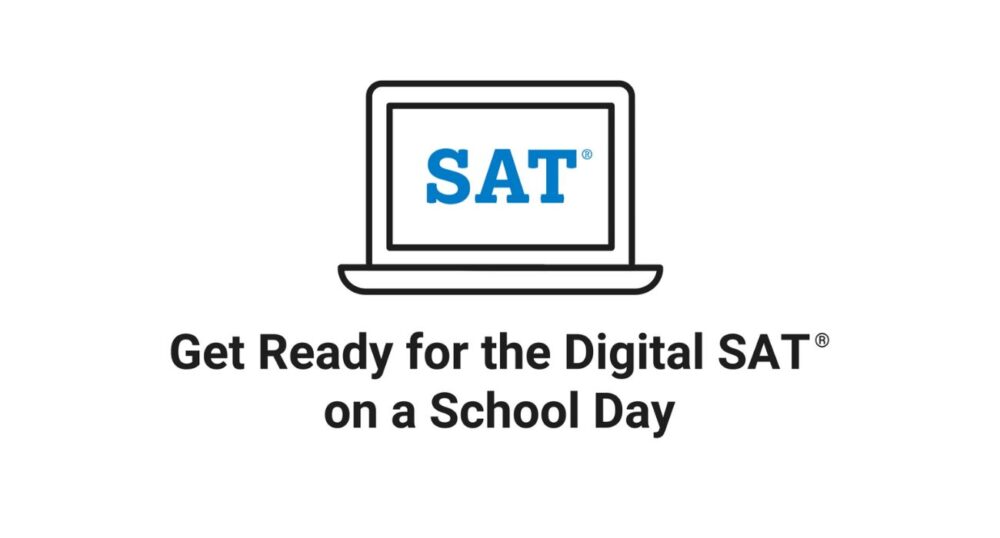An updated digital version of the Scholastic Aptitude Test debuted earlier this month, replacing the long-form paper test that has been the bane of many a college applicant over the past century.
Designed by the College Board, a non-profit organization that develops and administers standardized tests to promote college readiness, the new SAT is significantly shorter, with reduced Reading and Writing sections. The allotted testing time is two hours and 14 minutes, shaving about 45 minutes off the time allowed for the previous paper test.
In addition, calculators may be used for the entire Math section, and a graphing calculator is built into the testing app for the user’s convenience. Students take the test using the Bluebook app, which also includes a timer, annotation, and other tools. Students can even take practice tests on the app.
“I really liked having the SAT online. I felt like there was more preparation because all the practice tests I did were online, so I felt like I was following that,” said a senior student named Sophie, per a College Board news release.
The test has faced backlash in recent years for being unfair and anxiety-inducing, as previously reported by The Dallas Express, but the College Board aims to mitigate those experiences with the new version of the test.
“Our goal was to provide a testing experience that is more relevant to today’s students and is less stressful for students to take and easier for educators to administer,” said Priscilla Rodriguez, senior vice president of College Readiness Assessments at College Board, in a March 12 news release.
On March 9, the first group of students took the digital test. College Board reported promising results, with 84% of students and 99% of staff saying they had a better experience with the digital SAT thanks to feeling more comfortable on a digital device.
However, some argue that the updates are still not enough. FairTest, a nonprofit that aims to end the “flaws of standardized testing,” has decried the SAT as “an extraordinarily effective self-validation mechanism for an elitist ‘meritocracy’ to continue to perpetuate itself. It is designed to maintain the existing class structure.”
FairTest criticized the update, stating: “While the [digital] SAT makes it more cost-effective for the College Board to deliver and score tests, it doesn’t solve any problems for the schools, counselors, or students. The digital SAT still exhibits gender, race, and income disparities.”
However, proponents of standardized testing claim it helps to weed out subjective bias.
“Given the subjective nature of individual teacher and district assessments, standardized tests allow for less probability of subjective bias when scoring responses,” Education Advanced claims on its website.
FairTest also claimed that the digital SAT burdens schools with providing free labor and using their own equipment now that paper materials will no longer be provided. The organization’s goal is to eliminate standardized test requirements, asserting that college admissions should remain test-optional or test-free.

